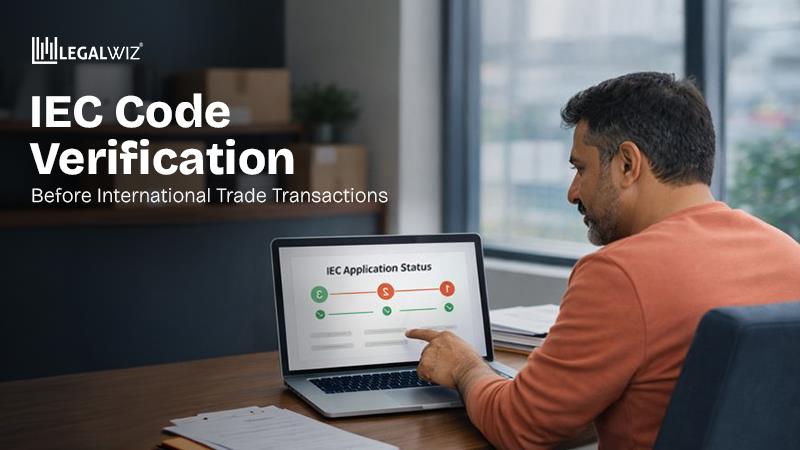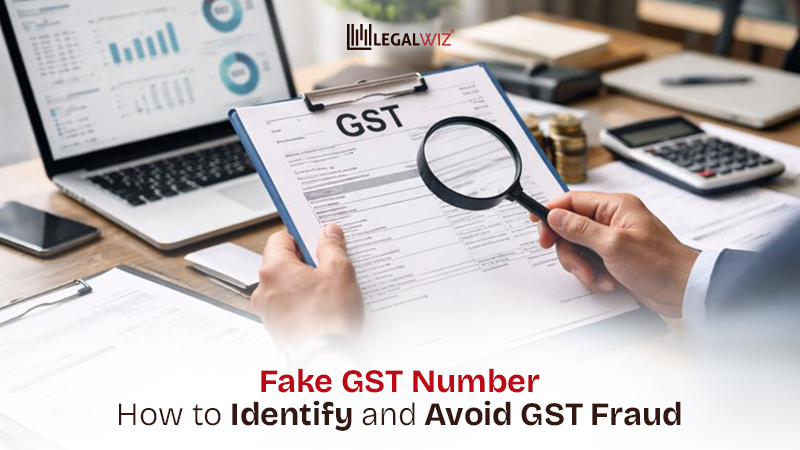GST, MCA, Income Tax: 2023 Compliance Due Dates Guide
As the old saying goes, time waits for no one, and when it comes to compliance deadlines, that couldn’t be more true. Missing just one deadline could result in hefty penalties or even legal issues. That’s why, without a doubt, maintaining a compliance calendar is crucial for businesses and accountants alike. With 2022 ending, there are a lot of Financial year closure activities for businesses and accountants to keep in mind. However, once that’s wrapped up, it’s equally important to know what the new year is going to expect of you. That’s why we have created a compliance calendar FY 2023-2024 with all the important due dates for the upcoming financial year. We have also provided a downloadable PDF of the compliance calendar FY 2023-2024 to help you stay on top of all your due dates.
Here is our compliance calendar FY 2023-2024 with the important due dates of GST, MCA, and Income Tax Act to keep in mind for the Financial year 2023 in India:
GST Deadlines:
Let’s start off our compliance calendar FY 2023-2024 with all the important due dates for GST. Here you’ll find the dates for different GST entities, such as for normal taxpayers, Composite taxpayers, etc. At the bottom of the section, you will also find a table with all the relevant due dates for GST.
Normal Taxpayers
A normal taxpayer under GST refers to an individual or entity whose annual turnover exceeds Rs. 20 lakhs if they are a goods provider or over Rs. 40 Lakhs if they are a service provider in India. Generally, most GST taxpayers tend to come under the category of normal taxpayers. Such taxpayers need to register for GST and file monthly returns. Normal taxpayers also need to pay taxes on their supplies of goods or services as per the applicable tax rate. They can claim input tax credits on their purchases made for business purposes, subject to certain conditions. They need to file both, GSTR-1 and GSTR-3B.
Taxpayers under the QRMP (Quarterly Returns with Monthly Payment) Scheme
A QRMP taxpayer under GST refers to a registered taxpayer who has opted for the Quarterly Return filing and Monthly Payment of Taxes (QRMP) scheme. Basically, this scheme is applicable to taxpayers whose annual turnover does not exceed Rs. 5 crores. Under this scheme, taxpayers need to file their returns on a quarterly basis, while making monthly payments of taxes. In essence, the QRMP scheme is aimed at reducing the compliance burden for small taxpayers and easing their cash flow. Likewise to normal taxpayers, QRMP taxpayers have to file GSTR-1 and GSTR-3B. However, they only need to file them quarterly.
Additionally, they can also file GSTR-1 IFF. This is an optional filing for taxpayers under the QRMP scheme. Generally, taxpayers under the QRMP scheme only need to file their GSTR-1 once every quarter. However, if a taxpayer wishes to file their GSTR-1 for a specific month earlier than their quarterly due date, they can file it under GSTR-1 IFF.
GSTR-IFF can be filed by taxpayers under the QRMP scheme on the 13th of every month for the preceding month. For instance, you can file a GSTR-1 IFF for November on 13th of December.
Note: You can file GSTR-1 IFF only on the months which do not have a GSTR-1 due date for taxpayers under QRMP. In other words, you cannot file GSTR-1 IFF in the months of January, April, July, and October.
Composite Taxpayers
A composite taxpayer under GST refers to a registered taxpayer who has opted for the Composition Scheme. This scheme is applicable to taxpayers whose annual turnover does not exceed Rs. 1.5 crores. Additionally, composite taxpayers can only indulge in Intra-state supplies, that is they can only provide goods and services within their state. Composite taxpayers need to pay tax at a fixed rate on their turnover and file quarterly returns. However, they are not eligible to claim input tax credits on their purchases. The Composition Scheme is aimed at reducing the compliance burden for small taxpayers and accordingly, providing them with a simpler and more efficient tax regime. Composite taxpayers have to file the forms GSTR-4 and CMP-08.
GST Compliance Calendar FY 2023
| Type of Taxpayer | Due Date |
| Normal Taxpayers | GSTR-1: GSTR-1 for every month is due on the 11th of the next month GSTR-3B: GSTR-3B for every month is due on the 20th of the next month |
| QRMP Taxpayers | GSTR-1: 1st Quarter (January-March 2023): 13th of April 2023 2nd Quarter (April-June 2023): 13th of July 2023 3rd Quarter (July-September 2023): 13th of October 2023 4th Quarter (October-December 2023): 13th of January 2024 GSTR-3B: 1st Quarter (January-March 2023): For QRMP taxpayers from South India: 22nd of April 2023 For QRMP taxpayers from North India: 24th of April 2023 2nd Quarter (April-June 2023): For QRMP taxpayers from South India: 22nd of July 2023 For QRMP taxpayers from North India: 24th of July 2023 3rd Quarter (July-September 2023): For QRMP taxpayers from South India: 22nd of October 2023 For QRMP taxpayers from North India: 24th of October 2023 4th Quarter (October-December 2023): For QRMP taxpayers from South India: 22nd of January 2024 For QRMP taxpayers from North India: 24th of January 2024 GSTR-IFF 13th of every month. Exception: You cannot file GSTR-1 IFF in the months of January, April, July, and October. |
| Composite Taxpayers | GSTR-4 Annual Return FY 2022-23: GST-4 Annual return is due on 30th of April, 2023. CMP-08 filing 1st Quarter (January-March 2023): 18th of April 2023 2nd Quarter (April-June 2023): 18th of July 2023 3rd Quarter (July-September 2023): 18th of October 2023 4th Quarter (October-December 2023): 18th of January 2024 |
Income Tax Deadlines:
The next set of important due dates in our compliance calendar FY 2023-2024 are the Income Tax due dates. This includes dates such as TDS and TCS filing due dates, Income tax return filing dates, etc. We have also added our Income Tax compliance calendar table at the bottom of the section.
TDS/TCS Payment
TDS/TCS Challan payment
TDS/TCS Challan payment refers to the tax deducted at source (TDS) or tax collected at source (TCS) payment made by taxpayers to the government. TDS is the amount deducted from payments made to a contractor, employee, or any other party, while TCS is the amount collected by a seller from a buyer. The payment of TDS/TCS Challan is made through online or offline modes, and it is mandatory for taxpayers to pay the TDS/TCS amount within the due date to avoid any penalty or interest charges. Moreover, TCDS/TCS challan payment is primarily applicable to LLPs, Private limited companies, partnership firms, and Sole proprietorship firms, to whom audit is applicable.
TCS Quarterly Return Filing
TCS Quarterly Return Filing is a process in which taxpayers who have collected TCS are required to file a quarterly return with the Income Tax Department. The TCS return includes details such as the TCS amount collected, the name and PAN of the buyer, and other relevant information. Filing the TCS return within the due date is mandatory for taxpayers, and non-compliance can result in penalties or interest charges. TCS is mainly collected by businesses such as those involved in the sale of motor vehicles, parking lots, toll plazas, mining, quarrying, and selling of overseas tour packages.
TDS Quarterly Return Filing
TDS Quarterly Return Filing is a process in which taxpayers who have deducted TDS are required to file a quarterly return with the Income Tax Department. Moroever, this is a mandatory filing. The TDS return includes details such as the TDS amount deducted, the name and PAN of the deductee, and other relevant information. Non-compliance can result in penalties of Rs. 200 per day. Hence, filing the TDS return within the due date is very important for taxpayers. TDS is mainly deducted by employers and businesses to whom audit was applicable during the last financial year i.e, companies, LLPs, partnership firms, and lastly individuals.
Income Tax Return Filing FY 2022-2023
Income Tax Return Filing is the process by which taxpayers report their income and pay the tax due on it to the government. The Income Tax Department prescribes different ITR forms based on the nature and amount of income earned by taxpayers. It is mandatory for taxpayers to file their income tax returns within the due date. Additionally, any delay in filing can lead to hefty penalties.
Note: Employers are also required to issue a Form 16 certificate to their employees. The due date for issuing Form 16 is 15th June 2023.
Revised or Belated ITR Filing FY 2022-2023
Revised or Belated ITR Filing is the process by which taxpayers can file their income tax returns after the due date or make changes to their already filed returns. In essence, this filing lets you fix any errors in your IR filing or file any missed returns. The belated return, also known as ITR-U, can be filed within two years from the end of the relevant assessment year, but it attracts a higher penalty and interest charges.
Advance Tax
Additionally, taxpayers may also need to pay advance tax. Advance Tax refers to the payment of tax in advance by taxpayers on their estimated income during the financial year. Advance tax is paid in installments throughout the year and is applicable to taxpayers who are not salaried and whose tax liability exceeds a certain limit. Moreover, failure to pay advance tax can attract interest. Only taxpayers whose tax liability is INR. 10,000 or more needs to pay advance tax.
Tax Audit Report Filing FY 2022-23 (for taxpayers to whom Tax Audit is applicable)
Tax Audit Report Filing under section 44AB is a process in which taxpayers are required to get their accounts audited by a chartered accountant and accordingly file the tax audit report with the Income Tax Department. Taxpayers whose turnover or income exceeds a certain limit are required to get their accounts audited and file the tax audit report within the due date. Not to mention, non-compliance can lead to penalties and interest charges.
Note: The due date for linking PAN to Aadhar has been extended to June 30, 2023.
Income Tax Compliance Calendar FY 2023
| Type of Compliance | Due Date |
| TDS/TCS Payment | TDS/TCS Challan payment for all companies and employers: 7th of the upcoming month. Exception: TDS/TCS challan due date for March 2023 is 30th April 2023. TCS Quarterly Return Filing 4th Quarter of FY 2022-2023 (January-March 2022): 15th of May 2023. 1st Quarter of FY 2023-2024 (April-June 2023): 15th of July 2023. 2nd Quarter FY 2023-2024 (July-September 2023): 15th of October 2023. 3rd Quarter FY 2023-2024 (October-December 2023): 15th of January 2024. TDS Quarterly Return Filing 4th Quarter of FY 2022-2023 (January-March 2022): 31st of May 2023. 1st Quarter of FY 2023-2024 (April-June 2023): 31st of July 2023. 2nd Quarter FY 2023-2024 (July-September 2023): 31st of October 2023. 3rd Quarter FY 2023-2024 (October-December 2023): 31st of January 2024. Note: The due date for 4th quarter of FY 2022-2023 for TDS and TCS Quarterly return filing is applicable for all companies and employers who have charged TDS/TCS. The other due date are only applicable for Corporate and Government collectors and deductors. |
| Income Tax Return Filing FY 2022-2023 | For taxpayers for whom tax audit is not applicable: 31st July 2023 For all companies, and for all non-company taxpayers to whom tax audit is applicable: 31st October 2023 Businesses with international/specified domestic transactions: 30th November 2023 |
| Revised or Belated ITR Filing FY 2022-2023 | 31st December 2023 |
| Advance Tax | For April-June 2023: 15th of June 2023 For July-September 2023: 15th of September 2023 For October-December 2023:15th of December 2023 For January-March 2024: 15th of March 2024 |
| Tax Audit Report Filing FY 2022-23 | 30th September 2023 |
For Companies
As we all know, meeting company compliance requirements are very important. Every year the ROC compliance calendar lists all the important due dates for different types of companies like Private Limited Companies, One Persona Companies, Section 8 Companies, and Public Limited Companies. Not meeting the requirements of filing compliance by the dates specified in the ROC compliance calendar can lead to per-day penalties and even strike-off. Our compliance calendar FY 2023-2024 also has a list of all the Registrar of companies/ROC filing due dates. Important ROC filing due dates include dates for filing forms such as AOC-4 filing, ADT-1, filing, DPT-3 filing, etc. You’ll find our “Company due dates” table at the end of this section.
AOC-4 FY 2022-2023 (Financial Reporting to ROC)
AOC-4 refers to the form that companies in India must file with the Ministry of Corporate Affairs (MCA) to submit their financial statements and annual reports after the completion of the statutory audit. Moreover, this form is mandatory for all companies registered under the Companies Act, 2013. The AOC-4 form contains details about a company’s balance sheet, profit and loss statement, cash flow statement, and other financial data.
ADT-1 (Appointment of Auditor)
ADT-1 is a form that auditors in India must file with the MCA to notify the government that they have been appointed as an auditor for a specific company. This form is mandatory for all companies registered under the Companies Act, 2013. The ADT-1 form contains details such as information about the auditor’s appointment, tenure, and remuneration.
DPT-3 (Return of Deposit) FY 2022-2023
DPT-3 is a form that companies in India must file with the MCA to report their outstanding loans or borrowings as of the end of the financial year. This form is mandatory for all companies registered under the Companies Act, 2013. The DPT-3 form contains details about the loan, for example, details about the amount of the loan, the interest rate, and the repayment terms.
DIR-3 KYC for all Directors in Companies
DIR-3 KYC is a form that all directors of Indian companies must file annually with the MCA to verify their personal information and identity. This form is mandatory for all directors of companies registered under the Companies Act, 2013. The DIR-3 KYC form contains details about the director’s personal information, such as their name, address, and contact details.
Annual Return FY 2022-2023 (MGT-7 & 7A)
Annual return filing MGT-7 and MGT-7A are forms that companies in India must file with the MCA to report their annual returns. The MGT-7 form is used for companies registered under the Companies Act, 2013, while the MGT-7A form is used for One Person Companies (OPC). These forms contain details about the company’s directors, shareholders, and company’s performance.
AGM (Annual General Meeting) 2023
Companies in India, specifically, Private Limited Companies and Public Limited Companies have an additional mandatory requirement of holding an Annual General Meeting (AGM). It is a yearly meeting of the shareholders where they discuss matters such as the company’s performance, financial statements, and other matters of importance. The AGM must be held within six months from the end of the financial year, and the notice of the meeting must be given to all shareholders at least 21 days before the meeting. The shareholders have the right to attend and vote on the matters discussed in the AGM, such as the appointment of directors, auditors, and the approval of the financial statements. Hence, the AGM is a crucial platform for the shareholders to participate in the decision-making process of the company and ensure its smooth functioning.
PLC compliance calendar 2023:
| Type of Compliance | Due Date |
| AOC-4 FY 2022-2023 (Financial Reporting to ROC) | For Private limited companies: AOC-4 and AOC-4 CFS is due date on 29th of October 2023 For OPCs (One Person Companies): AOC-4 original is due on 29th of September 2023 |
| ADT-1 (Appointment of Auditor) | 15th of October 2023 |
| DPT-3 FY 2022-2023 (Return of Deposit) | 30th June 2023 |
| DIR-3 KYC for all Directors in Companies | 30th September 2023 |
| MGT-7 & 7A Annual Return FY 2022-2023 | 29th November 2023 |
| AGM (Annual General Meeting) 2023 | 30th September 2023 |
For LLPS
Overall LLPs tend to have only a few compliances. They include form submissions, such as Form 11, Form 8, and submitting DIR-3 KYC. Our LLP compliance calendar 2023 table is at the end of this section.
Annual Return FY 2022-2023 (Form 11)
Form 11 is a mandatory annual compliance requirement under the Limited Liability Partnership Act, 2008, which must be filed by all LLPs with the Registrar of Companies. This form contains information related to important matters of the LLP, such as the LLP’s management, including details of all designated partners, changes in the partnership structure, and compliance status. The Annual Return Filing Form 11 must be filed within 60 days of the close of the financial year. Failure to comply with the annual return filing can result in per-day penalties and can also impact the LLP’s status and legal standing.
Statement of Accounts FY 2022-2023 (Form-8)
Form 8 is a statement of accounts and solvency, which must be filed annually by all LLPs with the Registrar of Companies. In essence, the purpose of the statement of accounts is to provide a snapshot of the LLP’s financial status. It includes information such as details of its assets, liabilities, income, and expenses. The statement of accounts must be signed by the designated partners. Additionally, it must be accompanied by a declaration of solvency, stating that the LLP is solvent and able to meet its liabilities. Finally, the Statement of Accounts Form 8 must be filed within 30 days from the end of 6 months of the financial year-end to avoid penalties and legal consequences.
DIR-3 KYC for all Designated Partners LLPs
The DIR-3 KYC is a compliance requirement under the Limited Liability Partnership Act, 2008, which mandates all designated partners to file the DIR-3 KYC form annually. In essence, this form serves as a Know Your Customer (KYC) document for the designated partner of the LLP. The purpose of the DIR-3 KYC is to verify the identity and address of the designated partner and to ensure that the LLP is aware of the director’s activities, such as directorship in other companies. The DIR-3 KYC includes personal and professional information of the designated partner and requires digital signatures for authentication.
LLP compliance calendar 2023:
| Type of Compliance | Due Date |
| Form 11 Annual Return FY 2022-2023 | 30th May 2023 |
| Form-8 Statement of Accounts FY 2022-2023 | 30th October 2023 |
| DIR-3 KYC | 30th September 2023 |
PF/ESI Payment deadlines:
Another set of important due dates in our compliance calendar FY 2023-2024, especially for companies and employers are the PF and ESI due dates. We have also provided a PF/ESI Compliance Calendar table at the bottom of this section.
PF challan
PF Challan refers to the payment voucher that employers use to remit contributions towards the Provident Fund (PF) of their employees. The PF is a retirement benefits scheme that is mandatory for all organizations employing 20 or more employees. The PF Challan contains details such as the employer’s name, address, PF account number, the total amount to be deposited, and the due date of payment. Employers need to deposit the PF contribution amount before the 15th of every month, failing which they will attract penalties and interest.
ESI/ESIC Payment
The Employees’ State Insurance (ESI) is a social security scheme that provides medical and cash benefits to employees and their dependents in case of any employment-related injuries, illnesses, or disabilities. The ESIC (Employees’ State Insurance Corporation) is the governing body that administers the scheme. Employers need to contribute towards the ESI on behalf of their employees, and the contribution amount is determined accordingly based on the employee’s salary. ESIC scheme only applies to organizations with 10 or more employees who have a salary of up to INR. 21,000. The ESI/ESIC payment can be made online through the ESIC portal or through designated banks.
PF Annual Return FY 2022-2023 (Forms 3A and 6A):
PF Annual Return Forms 3A and 6A are two separate forms that employers need to submit every year to the Employees’ Provident Fund Organization (EPFO). Form 3A contains the details of individual employee contributions made to the PF during the year, while Form 6A provides a summary of the contributions made by the employer towards the PF. The forms also contain information such as the employee’s name, PF account number, basic salary, and the total contribution made by the employer and the employee. Employers have to submit these forms by the 30th of April every year to comply with the regulations of the PF scheme.
PF/ESI Compliance Calendar FY 2023:
| Type | Due Date |
| Provident Fund | PF (Provident Fund) challan: 15th of every month. PF Annual Return FY 2022-2023: 25th of April 2023 |
| Employee’s State Insurance Corporation | ESI or ESIC (Employee’s State Insurance Corporation) payment: 15th of every month |
Financial Budget 2024
The financial budget for 2024 is expected on the 1st of February, 2024. If you’re interested in knowing about the current union budget, you should read our article: Key Features of Union budget 2023
Note: All the due dates in our compliance calendar FY 2023-2024 are subject to change as per relevant department notifications during the financial year
Conclusion
With a new financial year, come new deadlines for compliance. As mentioned earlier, not meeting compliance requirements can give rise to hefty fines. Hence, it’s important to file the relevant forms and statements on time. We hope our compliance calendar FY 2023-2024 article will help you stay on top of all of your deadlines for FY 2023-2024. Just add these dates to your calendar, and then you’ll be good to go! Additionally, if you have any doubts or need any help with your filing requirements, you can always reach out to us at LegalWiz.in!

Monjima Ghosh
Monjima is a lawyer and a professional content writer at LegalWiz.in. She has a keen interest in Legal technology & Legal design, and believes that content makes the world go round.








Excellent – Very useful infermation
Thank you for the comment. Do check out our other blogs on business growth and management!